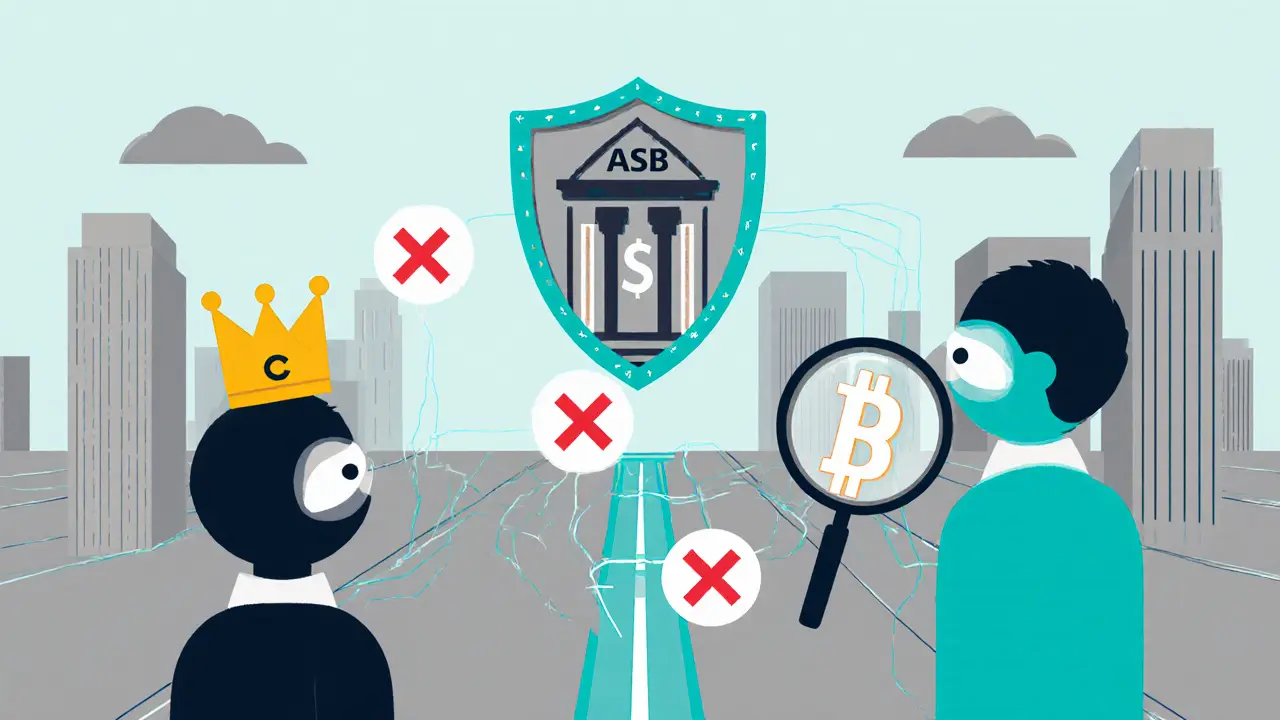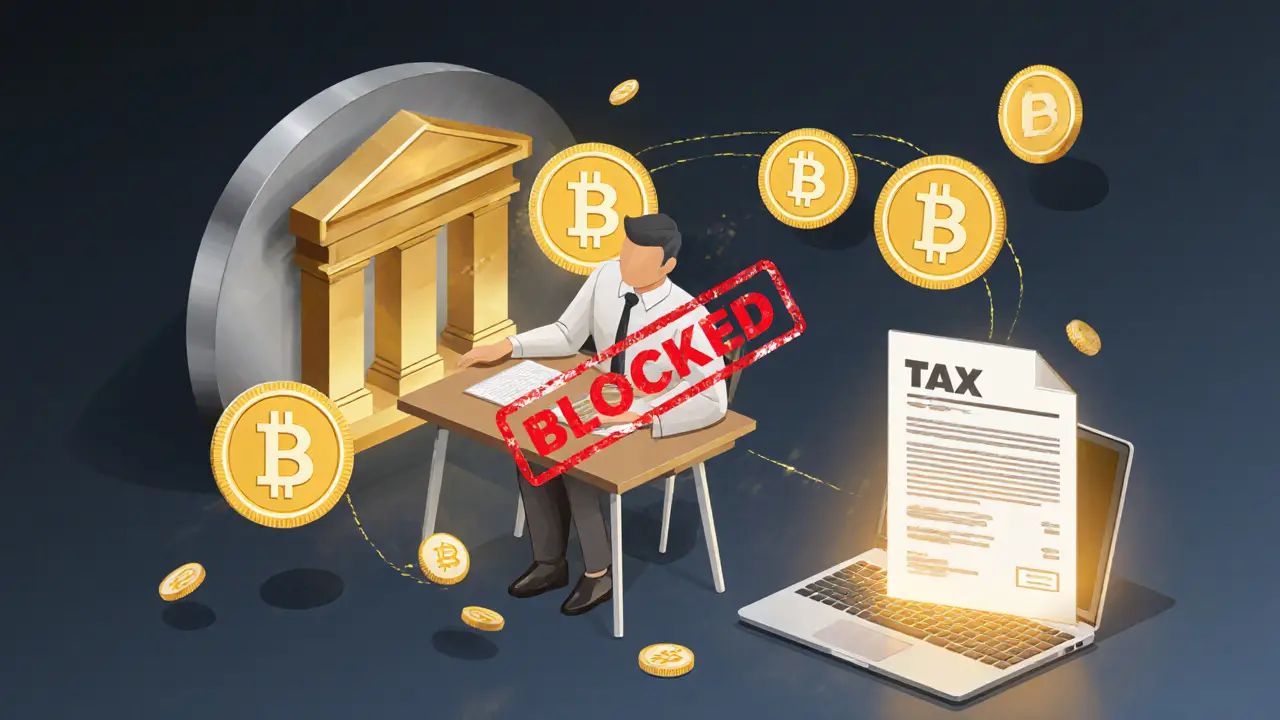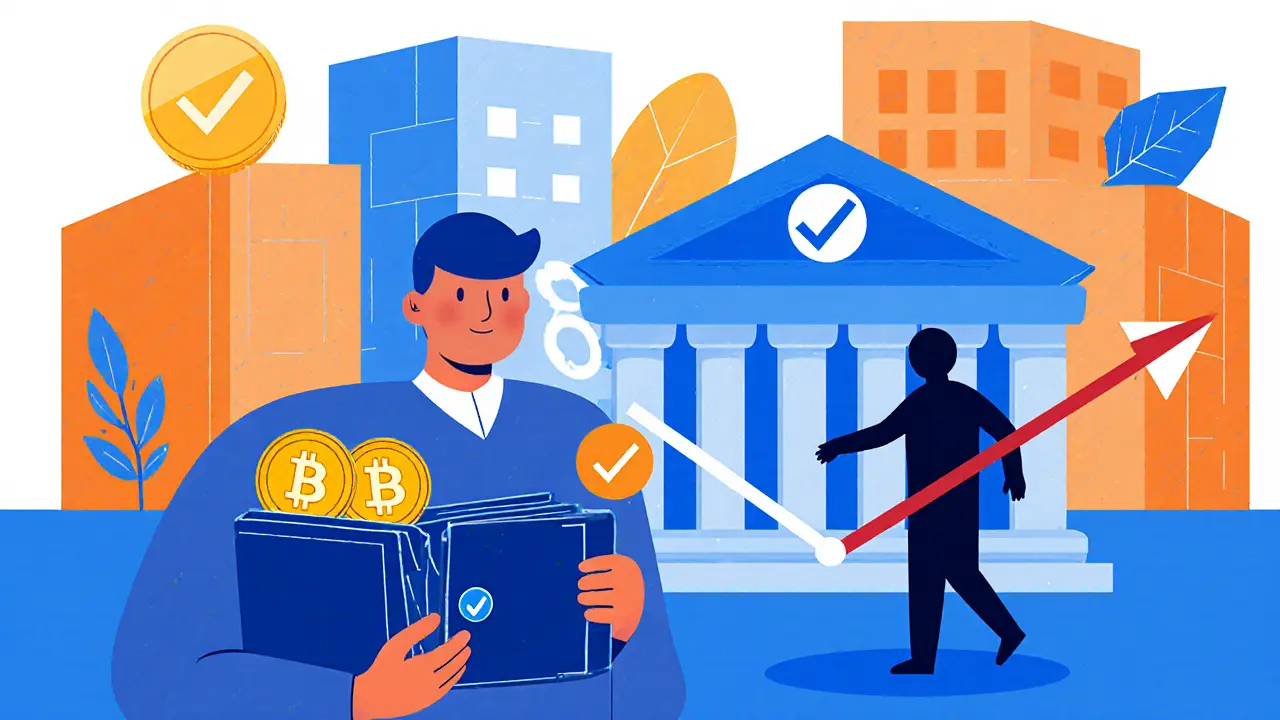Back in 2014, Bolivia made headlines by banning all cryptocurrency activity. If you were caught trading Bitcoin or Ethereum back then, you risked serious trouble. But that changed in June 2024. The Central Bank of Bolivia lifted the ban, and the rules completely flipped. Today, crypto isn’t illegal-but it’s tightly controlled. The real danger isn’t owning crypto anymore. It’s using it the wrong way.
What’s Legal Now?
You can legally own and trade cryptocurrencies in Bolivia as of 2025. Stablecoins like USDT and USDC are widely used, especially by individuals. The Central Bank of Bolivia (BCB) even reported that cryptocurrency transactions jumped 630% in just one year-from $46.5 million in early 2024 to $294 million in the first half of 2025. Most of these transactions-86%-come from regular people, not businesses.The key rule? Every crypto transaction must go through a licensed bank or authorized electronic payment system. You can’t send Bitcoin directly from wallet to wallet and call it a day. Even if you’re just swapping USDT for bolivianos, the transfer has to be routed through a bank that’s approved by regulators.
Banco Bisa, one of Bolivia’s biggest banks, launched a stablecoin custody service in October 2024, letting customers hold and transfer Tether (USDT) securely. This isn’t a side project-it’s part of the official system. The government wants crypto activity visible, traceable, and tied to the financial system.
What’s Still Illegal?
The ban is gone, but the restrictions are sharper than ever. Here’s what you absolutely cannot do:- Use cryptocurrency to pay for goods or services outside of approved channels
- Transfer crypto directly between personal wallets without bank involvement
- Run an unregistered exchange or crypto service
- Use crypto to evade taxes or hide income from authorities
- Process payroll or business invoices using crypto unless done through a licensed bank
Even if you’re just helping a friend send USDT to pay for rent, if it doesn’t go through a regulated bank, you’re breaking the law. The government isn’t going after people who bought Bitcoin for investment. They’re going after anyone who bypasses the system.
Who Enforces the Rules?
Three main agencies keep an eye on crypto in Bolivia:- Central Bank of Bolivia (BCB): The main regulator. They set the rules and monitor transaction volumes.
- Financial System Supervisory Authority (ASFI): Oversees financial institutions to make sure banks follow crypto rules.
- Financial Investigations Unit: Looks for money laundering, fraud, or links to international sanctions.
Banks are required to report every crypto transaction daily. They cross-check names against global sanctions lists. If someone tries to send crypto from a flagged account, the transaction gets blocked automatically. Suspicious activity triggers an investigation.

What Are the Penalties?
There’s no official fine schedule published. That’s intentional. The government doesn’t want people to test the limits. But here’s what you can expect if you violate the rules:- Account freezes: Your bank can lock your account if they spot unauthorized crypto transfers.
- Transaction reversals: Any illegal transfer can be undone, and funds returned to the original sender.
- Fines: While exact amounts aren’t public, penalties are applied on a case-by-case basis. Repeat offenders face higher fines.
- Criminal charges: If regulators believe you’re laundering money or funding illegal activity, you could face prosecution.
- Business shutdowns: Unregistered crypto exchanges or payment processors are shut down immediately.
One real-world example: In late 2024, a small business in Santa Cruz tried to pay employees using USDT sent directly via a peer-to-peer app. The bank flagged the activity. The company’s accounts were frozen for 45 days. They had to pay a fine, register with regulators, and start using a licensed payment processor to resume operations.
Taxes: No Penalty for Individuals, Big Risk for Businesses
Here’s one of the biggest surprises: individual traders don’t pay capital gains tax on crypto profits. If you bought Bitcoin in 2024 and sold it for a profit in 2025, you don’t owe Bolivia anything. That’s rare in Latin America.But if you’re running a business-like mining, staking, or operating a crypto exchange-you’re taxed at 25% corporate income tax. That’s the same rate as for any other business. If you don’t report those profits, you’re not just breaking crypto rules-you’re breaking tax law. And tax evasion carries heavier penalties than unregistered crypto transfers.

Who’s Using Crypto in Bolivia?
The data tells a clear story:- 86% of users are individuals, not businesses
- 75% of users are men
- Most trade on Binance or similar platforms
- USDT is the dominant stablecoin-used for both trading and payments
- Monthly crypto transaction volume averages $15.6 million
People aren’t using crypto to replace the boliviano. They’re using it to protect savings from inflation and send money across borders without expensive remittance fees. It’s a workaround, not a replacement.
How to Stay Legal
If you’re in Bolivia and want to trade crypto safely in 2025, follow these steps:- Only use platforms connected to licensed banks (like Banco Bisa’s USDT service)
- Never send crypto directly to another person’s wallet unless it’s routed through your bank
- Keep records of all transactions, even if you’re not taxed
- Don’t use crypto for business payments unless you’ve registered with ASFI
- Be wary of unregulated exchanges or P2P apps that promise anonymity
There’s no need to hide. The system is designed to let you use crypto-just within the lines. The government isn’t trying to stop innovation. They’re trying to stop abuse.
What’s Next?
Bolivia is working with El Salvador’s digital asset commission to improve its oversight systems. That means more advanced monitoring, better fraud detection, and possibly new reporting requirements down the line. The goal? To make Bolivia a safe, transparent hub for crypto in Latin America-not a loophole.For now, the message is simple: You can trade. You can hold. You can even profit. But if you try to go off the grid, the system will find you.
Is it legal to own Bitcoin in Bolivia in 2025?
Yes, owning Bitcoin and other cryptocurrencies is legal in Bolivia as of June 2024. The ban was officially lifted, and individuals can hold digital assets without penalty. However, you must use licensed banks or approved electronic payment systems for any transactions.
Can I use USDT to pay for things in Bolivia?
You can use USDT or other stablecoins for payments-but only through licensed financial institutions. You cannot pay a local store directly with USDT unless they’re registered with ASFI and use an approved payment channel. The boliviano remains the only legal tender for everyday purchases.
Do I have to pay taxes on crypto profits in Bolivia?
No, individual traders do not pay capital gains tax on crypto profits. If you buy and sell Bitcoin or Ethereum for personal investment, you owe no tax. However, if you run a business involving crypto-like mining, staking, or operating an exchange-you must pay 25% corporate income tax on profits.
What happens if I send crypto directly from my wallet to someone else’s?
Sending crypto directly between wallets without going through a licensed bank is considered an unauthorized transaction. Your bank may freeze your account, reverse the transaction, and report you to regulators. You could face fines or legal action, especially if the transfer is linked to suspicious activity or large amounts.
Are crypto exchanges legal in Bolivia?
Only registered exchanges are legal. All cryptocurrency service providers must register with Bolivia’s Financial System Supervisory Authority (ASFI). Unregistered platforms are shut down immediately. Most users trade on international platforms like Binance, but they must still route transactions through Bolivian banks to stay compliant.
Can businesses pay salaries in cryptocurrency?
Yes, but only through licensed banks. Employers can use stablecoins like USDT to pay payroll, but the payment must be processed via an authorized financial institution. The boliviano must still be the base currency for accounting purposes, and all transactions must be reported to regulators.

Becky Shea Cafouros
November 14, 2025 AT 21:30sandeep honey
November 16, 2025 AT 02:32Mandy Hunt
November 17, 2025 AT 02:37Drew Monrad
November 18, 2025 AT 05:03Kandice Dondona
November 20, 2025 AT 01:19anthony silva
November 22, 2025 AT 00:54David Cameron
November 23, 2025 AT 20:20Robert Astel
November 24, 2025 AT 20:41Andrew Parker
November 26, 2025 AT 14:24Kevin Hayes
November 28, 2025 AT 01:15Katherine Wagner
November 29, 2025 AT 15:08ratheesh chandran
December 1, 2025 AT 08:39Hannah Kleyn
December 2, 2025 AT 14:04gary buena
December 4, 2025 AT 04:37Vanshika Bahiya
December 6, 2025 AT 01:04Albert Melkonian
December 6, 2025 AT 22:19Kelly McSwiggan
December 6, 2025 AT 23:41Byron Kelleher
December 7, 2025 AT 16:02Cherbey Gift
December 8, 2025 AT 14:19Cody Leach
December 9, 2025 AT 04:38